
PUMPA - SMART LEARNING
எங்கள் ஆசிரியர்களுடன் 1-ஆன்-1 ஆலோசனை நேரத்தைப் பெறுங்கள். டாப்பர் ஆவதற்கு நாங்கள் பயிற்சி அளிப்போம்
Book Free DemoBefore studying the experiments of Mendel, it is better to know the below terminologies and symbols related to the topic of genetics.
Hybrid and types
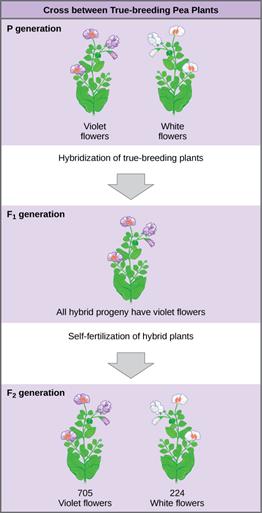
Cross between pure-breeding pea plants
A hybrid is an organism formed by crossing two genetically distinct individuals.
Monohybrid cross
A monohybrid cross is a cross made between two organisms to study the inheritance of a single pair of alleles of a character. E.g., The cross between homozygous tall (TT) and homozygous dwarf (tt) forms is heterozygous tall (Tt) plants. The Tt plant is heterozygous for genes that control one of its characteristics (height). It is a monohybrid, and this cross is referred to as a monohybrid cross.
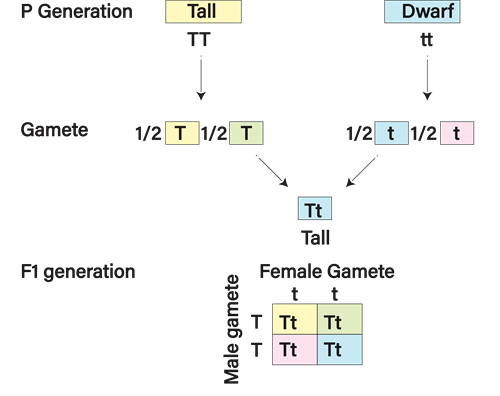
Monohybrid cross
Dihybrid cross 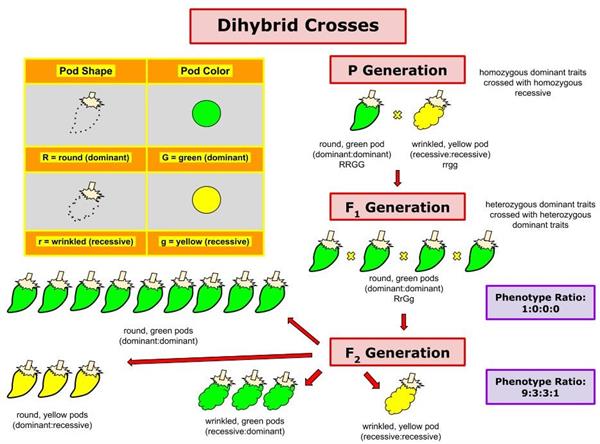
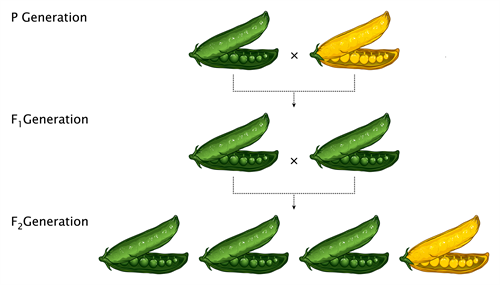
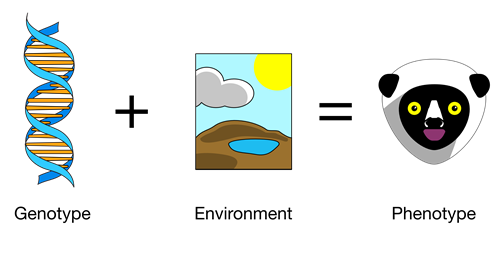
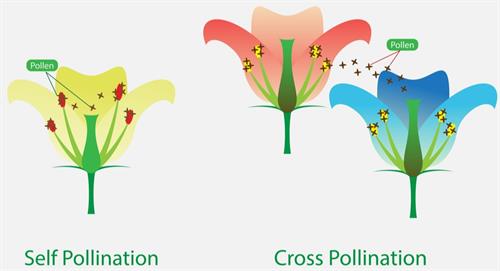
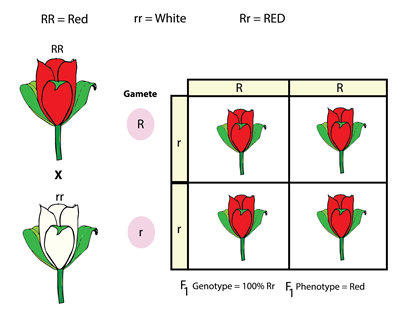
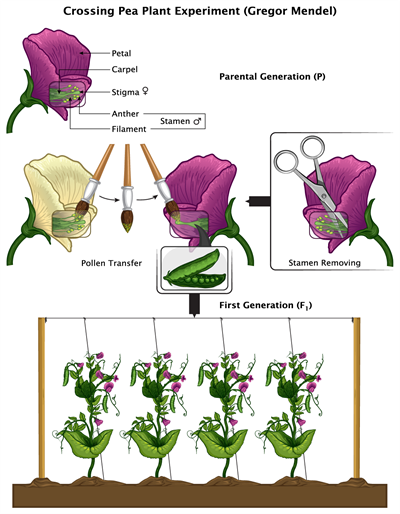
A dihybrid cross is a cross between two organisms made to study the inheritance of two pairs of alleles from two different genes.

Dihybrid cross
Trihybrid cross
Trihybrids are created by crossing two individuals of the same species to study the inheritance of three sets of variables or alleles from three separate genes.
Filial generations:

Mendel genetic concept crossing pea plant experiment
F1 generation
The F1 generation, also known as the first filial generation, is the generation of hybrids produced by a cross between genetically different individuals known as parents.
F2 generation
The F2 generation, also known as the second filial generation, is the generation of young one forms due to inbreeding or interbreeding between representatives of the F1 generation.
Genotype and phenotype

Genotype and phenotype
Genotype
A genotype is a collection of genetic information encoded in the genes of a cell or organism.
Phenotype
Phenotype is the result of the genotype interaction with environmental factors. It means the totality of all the characteristics and properties of the organism.
Selfing, cross, pure line, and Punnett square

Self and cross-pollination
Selfing
The fusion of male and female gametes from a single genetic individual is known as selfing.
Cross
In genetics, cross results from breeding two parents with different genes, resulting in offspring with traits from both parents.
Pure line
A pure line is defined as an animal or plant with particular qualities passed down across generations as a result of inbreeding.

Pure line breeding between red and white flowers
Emasculation
Emasculation is the removal of the male sex organ. It is executed in plant breeding to remove stamens from a bisexual flower to prevent self breeding.

Emasculation process
A video explaining emasculation, tagging, and bagging
Symbols
P - genotypes of parental forms
F - genotypes of offspring
A - dominant gene
a - recessive gene
Aa - heterozygous state of two allelic genes
AA - homozygous state of dominant genes
aa - homozygous state of recessive genes
AaBb - diheterozygote
AaBbCc - trigheterozygote
" × " - crossing
♀ - maternal organism
♂ - paternal organism
F - genotypes of offspring
A - dominant gene
a - recessive gene
Aa - heterozygous state of two allelic genes
AA - homozygous state of dominant genes
aa - homozygous state of recessive genes
AaBb - diheterozygote
AaBbCc - trigheterozygote
" × " - crossing
♀ - maternal organism
♂ - paternal organism
Reference:
https://upload.wikimedia.org/wikipedia/commons/6/62/Figure_12_01_02.jpg
https://upload.wikimedia.org/wikipedia/commons/2/2e/Dihybrid_Cross_of_Pea_Plants.jpg
https://upload.wikimedia.org/wikipedia/commons/0/08/Genotype_Plus_Environment.png
https://upload.wikimedia.org/wikipedia/commons/2/2e/Dihybrid_Cross_of_Pea_Plants.jpg
https://upload.wikimedia.org/wikipedia/commons/0/08/Genotype_Plus_Environment.png